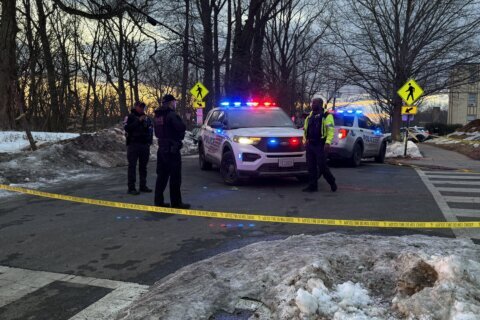Bread for the City has filed suit against the D.C. government for the city’s practice of sending law enforcement officers to answer mental health crises — a policy the nonprofit said discriminates against residents with disabilities.
The American Civil Liberties Union, which is representing Bread for the City in the federal lawsuit filed Thursday alongside law firm Sheppard Mullin, said the disparity in how first responders approach physical ailments versus mental health emergencies is a violation of the Americans with Disabilities Act.
Susan Mizner, who leads the ACLU’s Disability Rights Program, accused D.C.’s emergency response system of sending “a police officer with handcuffs and a gun” to residents under mental distress by default, in stark contrast to those with physical health emergencies, who more often get assistance from trained medical providers.
“The most effective response to a mental health crisis is to provide empathy, support, and a calm, safe environment,” Bread for the City social services director Tracy Knight said in a news release. “Although the District employs some mental health providers to respond to crises, it has not invested the resources needed or provided them the support necessary to be effective and widely deployed.”
The 47-page lawsuit cites sections of the ADA that prevent local governments from excluding a person with disabilities from benefits and services, or applying those services unevenly.
“MPD officers’ training and record of performance establishes that their presence creates a substantial risk that they will provide ineffective services and, instead, unnecessarily exacerbate the psychological trauma experienced by the person in crisis,” the complaint alleges.
“This inequity deprives people with mental health disabilities of an equal opportunity to benefit from the District’s emergency response program, in violation of the ADA.”
The suit also cites a 2021 report from the independent D.C. Police Reform Commission that recommended the city make “community-competent behavioral health care professionals the default first responders to 911 calls” involving behavioral crises.
“Law enforcement should be one option in an array of emergency responders, not necessarily the first option,” the commission said.
Investigations by the U.S. Department of Justice have found that similar police practices in other cities violated disability rights. A federal probe into the Minneapolis Police Department following the killing of George Floyd in 2020 found its officers lacked adequate training in responding to mental health emergencies.








